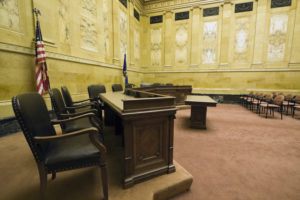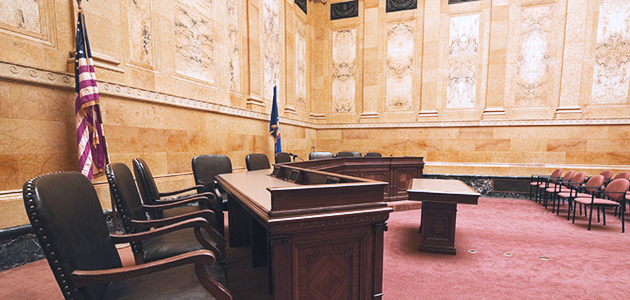 During the recent CLE program “Can You Say That? Legal Ethics of Working with Court Reporters,” put on by the Paralegal Section, these questions were addressed:
During the recent CLE program “Can You Say That? Legal Ethics of Working with Court Reporters,” put on by the Paralegal Section, these questions were addressed:
• Do you know what Assembly Bill 1197 requires in Notices of Deposition?
• Have you asked a court reporter for his/her opinion about your case, the witness or opposing counsel?
• Have you ordered a rough draft, expedite or excerpt and asked the court reporter not to inform other counsel?
• Have you agreed to a stipulation releasing the reporter of his/her duties under the code?
I was honored to moderate a panel of speakers, which included Hon. Charlotte Woolard (Ret.), ADR Services; Brooke Ryan, CSR, RPR, California Court Reporters Association; Kelly Bryce-Shainline, CSR, RPR, CRR, Bay Area Reporting Solutions; and Diane Freeman, CSR, RPR, co-owner of Freeman Reporting.
Workshop participants learned ethics rules and statutes impacting court reporters, attorneys, and their staff, including:
• How contracting and gifting may influence impartiality and ethics
• How the “SoCal” or “Usual” Stipulation impacts chain of custody of original transcripts
• What attorneys should never say to a court reporter
What is “contracting?”
Contracting is an agreement between some court reporting (CR) firms and law firm clients – primarily insurance companies – to provide preferred client rates in exchange for which corporations agree to give the CR firms all of their litigation work.
Why is this important?
Lawyers (and law firms) have no say in selecting a CR firm or court reporter; they are required to work with the designated “preferred provider of reporting services” chosen by the corporation. The contracting parties/law firms receive court reporting services and products at greatly reduced rates.
This is further complicated by the fact that many large CR firms are owned by venture capitalists, not licensed court reporters, who must maintain the highest ethical and professional standards under multiple CCP, B&P, California Code of Regulations and Government codes. Court reporters have no control over what these CR firm owners do, including cost shifting.
Opposing counsel cried foul when they discovered that noticing parties were being billed at lower rates than they. As a result, AB 1197 became law in January 2016, amending California CCP § 2025.220 (a) to ensure fairness and transparency. Notices of Deposition now require this language:
(8) (A) A statement disclosing the existence of a contract, if any is known to the noticing party, between the noticing party or a third party who is financing all or part of the action…
(B) A statement disclosing that the party noticing the deposition, or a third party financing all or part of the action, directed his or her attorney to use a particular officer or entity to provide services for the deposition, if applicable.¹
For answers to the above questions, order the CLE webinar and watch it with your staff. The information you gain is priceless. The webinar is available to purchase at www.sfbar.org/online-cle, search by the title.
Footnote
¹ https://leginfo.legislature.ca.gov/faces/billTextClient.xhtml?bill_id=201520160AB1197
Ana Fatima Costa, RPR, CSR is BASF’s Paralegal Section marketing coordinator. She spent her career as a freelance court and deposition reporter, office manager and sales executive to educate the legal community about court reporters’ crucial role as impartial guardians of the record. Contact her at ana@anafatimacosta.com.


